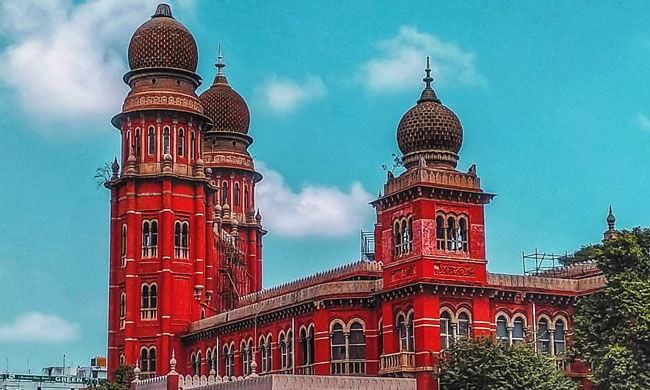The Madras High Courtcomposed of Judge R. Ramdevan and Judge Mohammed Shaffiq, ruled that the assessee is entitled to avail the cenvat credit of the service tax already paid, but the assessee was unable to claim it due to of a transitional provision which entered into force on 01.07.2017.
The Respondent/Assesser is engaged in the manufacture of GI Lathe Parts, ERW Black and GI Pipes falling under Chapter 73 of the Central Excise Tariff Act 1985. During the period from April 2016 to June 2017, they received technical know-how or intellectual property. rights of foreign persons and paid them royalties within the framework of their activities. For the services they received, they were required to pay a service tax on a reverse charge basis, which they had not originally paid. After reporting it in the departmental audit, they had paid the service charge of Rs. 24,20,684 with interest at Rs. 3,82,139 on May 2, 2018.
The Appellant/Department stated that although the assessee is entitled to avail of the Cenvat Credit under the Cenvat Credit Rules 2004, following the introduction of GST from 01.07.2017, the Relevant central excise and service tax laws have been repealed. . The Cenvat Credit Rules of 2004 have also been superseded by the new Cenvat Credit Rules of 2017. However, various transitional provisions have been adopted under the CGST Law of 2017 to benefit from the input tax credit on a transitional basis under articles 140 to 142 of the CGST law. , 2017 and Rule 117 of the CGST Rules, 2017. To claim transitional credit, a statement on Form GST-TRAN 1 must be filed within 90 days. The provision was not applicable to the case of the assessee, as he had only paid the service tax for the period from April 2016 to June 2017 on 02.05.2018 and, therefore, he could not receive a credit for the service tax already paid by it. . Thus, the assessee preferred a claim before the appellant for reimbursement of Rs. 24,20,684 in cash, relying on Sections 140 and 142(9)(b) of the CGST Act, 2017.
The department rejected the appellant’s refund claim on the ground that it did not relate to section 11B of the EAC, 1994, which made it applicable to service tax matters under section 83 of the Finance Act of 1994. The appraise does not fall under any of the situations listed in Article 54(8) of the CGST Act of 2017.
The assessee challenged the order made by the appellant before the seat of the single judge. The single judge’s bench set aside the order to dismiss and sent the matter back to the respondents for reconsideration.
The appellant argued that the assessee did not pay the appropriate service tax within the required time frame and did not pay until May 2018 after being noticed by a departmental audit. The assessee has lost the possibility of taking cenvat credit for the amount to be paid under the reverse charge. As the payment was made late, the assessee could not benefit from the cenvat credit in the ST-3 declarations within the time limit, namely 15.08.2017. They therefore resorted to reimbursement of the service tax by filing requests for reimbursement under the transitional provisions of Article 142 of the 2017 CGST law.
The Appellant argued that as the application did not meet any of the provisions of Section 142 of the CGST Act 2017, it was dismissed by the relevant Assistant Commissioner. However, the judge, instead of ordering the person being assessed to avail himself of the alternative remedy provided by law, ordered that the motion in writ be sent back to the respondents for reconsideration in light of the applicability of the article 142(3) of the CGST law. 2017. The doctrine of necessity cannot be invoked simply because the assessee pleaded that he had no recourse and that the tax laws must be interpreted strictly and that there is no fairness in tax so as to invoke the doctrine of necessity for the purpose of providing a remedy on request, when the person assessed has not complied with the legal provisions.
The respondent/appraise argued that, taking note of the assessee’s right to credit cenvat. No qualifying disposition was available. The judge rightly quashed the appellant’s order dismissing the assessee’s application and ordered the authority to reconsider the matter under s. 142(3).
“This court is of the opinion that what has been challenged here is only the order for dismissal made by the learned judge and, therefore, it is not necessary to set it aside in its entirety. However, this court is inclined to vary the learned judge’s order to some extent,” the court said.
The court ordered the appellant to examine the request of the person assessed under Article 142(3) of the 2017 CGST law, on the basis of the elements available on the merits and after having given the possibility of interview the person assessed, within six weeks.
Case Title: Deputy Commissioner of GST and Central Excise v M/s.Ganges International Private Limited
Case No.: WANo.1648 of 2022 and CMP.n°11262 of 2022
Dated: 17.08.2022
Citation: 2022 LiveLaw (Mad) 382
Counsel for the Appellant: Maître Hema Muralikrishnan
Counsel for the respondent: Maître Arthy
Click here to read/download the order

